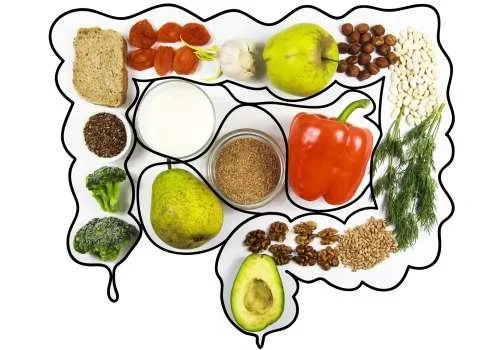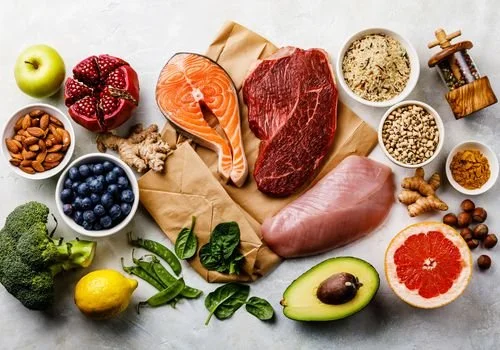PRECONCEPTION diet and gut health
It’s not only what you eat during pregnancy which impacts your babies health, but it’s also what you eat before you conceive.
It’s the basis of your diet which impacts your baby's health.
3-6 months before conception your diet starts to have an impact and it can be very beneficial to both you and baby to be taking in plenty of extra nutrients. How you eat during pregnancy has a huge impact on the placenta and the nutrients it receives.
You can really use this time to build up your nutrient store such as folate (more on this crucial nutrient below).
Look at your preconception diet as an Investment into your body, your fertility and it’s journey through pregnancy & beyond
Gut bacteria
Did you know that your gut Microbiombe is actually an organ?
It is a collection of microorganisms, which all serve a specific purpose in our body. So if it’s not working properly then there are going to be detrimental effects.
Having good gut bacteria can improve immunity (controls how the body responds to infection), reduce chances of obesity, prevent certain diseases such as heart disease and improves heart & brain health.
The food we consume affects the diversity of our gut bacteria.
To improve our good gut bacteria include more of the following to your diet:
Increase fibre intake.
Eat fermented foods such as kimchi and sauerkraut
Eat plenty of fresh fruits and vegetables - your gut loves diversity.
Fibre is what fuels the good gut bacteria, which is what will improve your gut health. The recommended amount of fibre per day is 30g for adults.
In general we’re not getting enough, probably half that amount, if not less. Including more fibre in your diet could effectively prevent weight gain, diabetes, heart disease and improve your immunity, all of which you can pass onto your baby.
Having too many unhealthy microbes can lead to disease. An imbalance of healthy and unhealthy microbes is sometimes called gut dysbiosis, and it may contribute to weight gain and reduced immunity.
Passing on good gut microbes is the best way you can set your baby up for good health.
When babies are born they are essentially born with a sterile gut. They have very few microorganisms in their intestines.
We have the opportunity of setting them on a path of having a healthy gut microbiome from birth.
Bifidobacteria bacteria is one of the first bacteria to grow in your baby's gut and it makes up 60% of the bacteria. It helps digest fibre, prevent infection, produces vitamins and digest healthy sugars found in breast milk.
Breast milk contains everything which babies need to grow and develop. It also feeds the beneficial gut bacteria.
Vaginal birth - mums pass gut microbes onto babies through delivery. If mum has a healthy gut then she essentially passes on all beneficial bacteria to the baby.
C-section- babies don’t get exposed to mums microbes. They will get their first microbes from skin to skin contact, hospital surfaces and clothing.
Preconception & prenatal diet
The Mediterranean diet has been best voted for egg quality, fertility, IVF outcomes and pregnancy.
This diet focuses on plenty of fruits, vegetables, omega 3, whole grains and reduced saturated fat.
Whilst trying to get pregnant and during pregnancy, it is advisable to avoid diets such as keto (very low carbs), cutting out food groups and restricted calories. All of these will restrict you and the placenta of nutrients. A balanced diet is what’s needed for a baby's development. A growing baby requires all the nutrients.
With regards to keto, this is advised against unless for specific people with certain health conditions.
Women with PCOS having a diet with a more moderate carbohydrate intake will be advised to help with insulin levels. Focusing more on complex carbohydrates such as vegetables, whole grains and low GI fruits.
It’s best to go into pregnancy at a healthy weight, It can be harmful for the baby if you try to diet whilst being pregnant, as this can restrict the baby of vital nutrients they need for development.
If you’re overweight during pregnancy then the nutrient profile in your diet has greater importance than your weight when it comes to your baby's development.
So if you are overweight, then focus on eating right with a nutritious balanced diet, exercise daily and attend all of your antenatal appointments.
How many extra calories do I need?
In the UK it is advised that an extra 200 calories in the 3rd trimester be consumed. This could be a bowl of porridge or a slice of toast with some nut butter on.
The American pregnancy association has slightly different recommendations and advises an extra 300 from the 2nd and 3rd trimesters.
Calorie requirements are dependent on lifestyle. If you’re active you might feel that you need more than the recommendations. It’s best to eat when you’re hungry, not deprive yourself and not to focus too much on calories.
Prenatal multivitamin & folic acid
Vitamin B9 (folic acid) is found in foods such as chickpeas, spinach, peas and fortified foods. Folic acid is crucial for reducing the risk of babies developing neural tube defects .
It’s advised that all women take a folic acid supplement of 400mg 2 months before conception and up to 12 weeks during pregnancy.
Some women need 500 mg of folic acid if they have diabetes, over 30 bmi or take anti epileptic medication.
40% of pregnancies are unplanned, so it could be worth all women taking a multivitamin containing folic acid as it won’t do any harm.
We want to get the majority of nutrients from our diets, but if you’re struggling to conceive then taking a prenatal supplement could be of benefit, as some studies have found that this can improve outcomes.
All women during pregnancy are advised to take a prenatal multivitamin as this provides the folic acid, vitamin D and won’t include vitamin A, which can be harmful to the baby. You can carry on taking prenatal multivitamins for a month after delivery, as it helps to restock depleted nutrients stores.
(You don’t need to take a folic acid supplement along with a prenatal multivitamin as the prenatal will have folate in, speak with GP or fertility dietician.)
Plant based and vegetarian
If you’re on a plant based or vegetarian diet you need to make sure that you’re getting enough certain nutrients:
Iron
Omega 3
B12
Selenium
If you’re concerned that you’re not getting enough, then it would be best to discuss this with your GP or fertility dietician.
Soy products are commonly used by vegetarians or vegans as a protein source. It has been found that soy intake can improve IVF outcomes.
The all important omega 3
DHA is one of the omega 3 fatty acids crucial for fetal and infant brain development.
Intake of DHA is connected with improved mental development and cognitive function.
During the 3rd trimester is when your baby’s brain is fully developing. DHA couldn’t be more important during this time.
Omega 3 is found in salmon , flaxseeds, walnuts.
If you do eat fish, then make sure to get 2 portions of oily fish per week. Salmon, sardines & mackerel, and carry on doing so throughout breastfeeding.
If you don’t eat fish, then start adding flaxseeds to your yogurt or porridge in the morning.
It might be a good idea to speak with your GP about taking an omega 3 supplement.

